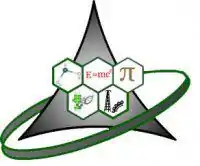National Science Talent Contest
National Science Talent Contest or NSTC is an extension of the National Physics Talent Contest launched by PAEC in 1995 on the directive of the then President of Pakistan. The purpose of NSTC is to inspire the youth of the Nation to opt for careers in science, and mathematics and to prepare young students for participation in International Science Olympiads in Physics, Biology, Chemistry and Mathematics.[1]

Home Institutions
Four leading education/research institutions of the country are Home Intuitions for different subjects of NSTC, where students are trained and tested and further screened for the subsequent phases of the contest:
Biology: National Institute for Biotechnology and Genetic Engineering (NIBGE), Faisalabad
Chemistry: H.E.J Research Institute of Chemistry, University of Karachi, Karachi
Mathematics: Abdus Salam School of Mathematical Sciences (ASSMS), G.C.U. Lahore, Lahore
Physics: Pakistan Institute of Engineering and Applied Sciences (PIEAS), Islamabad
The National Physics Talent Contest (NPTC), which was inspired by and is meant to prepare Pakistani Students for participation in the International Physics Olympiad, is a regular annual event since 1995. It is conducted in five stages.
Stages
- In the first stage more than 1000 educational institutions throughout the country, which offer science education at intermediate or A-level, are invited to nominate their best students who have secured 75% or more marks in physics and mathematics in their metric or O-level examination for participation in the Contest.
- The second stage consists of a screening test that is held in major cities of the country on the basis of which the top 50 students are selected from among these and other students of similar academic standing, who apply against advertisements in the press.
- The third stage consists of a weeklong intensive training Camp during the end of August, which is held at home institutions of each subject, where students are coached and tested in theory in the mornings and in experiments in the afternoons. In between they are shown the experimental facilities in the respective home institutions and in the evenings they meet a renowned scientist or engineer, who is invited to share his/her research interests with them. Each day of the Camp is named after a renowned scientist such as Alberuni, Galileo and Newton, etc., whose contributions is the focus of discussions that day. A team of 12-15 students is selected for the next phase on the basis of their performance during the camp and the experimental and theoretical exam on the last day of the Camp, the Day of Judgment. All of the students participating in the Camp are awarded prizes in the form of a standard subject textbooks. These students also become Alumni of NSTC.
- For the fourth phase of the Contest students, who are short listed during the 1st Camp, are invited to a second one-week Camp towards the end of December. The experimental and theoretical training during this Camp is much more focused. On the basis of their performance during the camp and a more formal test on the last day of the camp 7-8 students are selected for the next stage of the Contest.
- Fifth Stage: These 7-8 students are invited to the home institutions for another weeklong Camp for the fifth phase of the Contest, which is more or less identical to the previous Camp. The five-member Pakistani team for participation in the International Science Olympiads and the winners of the Contest are selected at the end of this Camp. All of these five students are awarded merit certificates and the top five students are also awarded cash prizes worth 20,000 each . The team members are coached for another week before their departure for the Olympiad. The Chief Guest, who is normally the President or the Prime Minister, awards these prizes during the inaugural ceremony of the International Nathiagali Summer College of Physics and Contemporary Needs. President Pervez Musharraf awarded these prizes to the winner of the previous three Contests.[2]